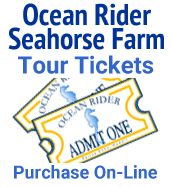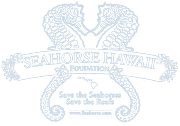Ocean Rider Seahorse Farm and Tours | Kona Hawaii › Forums › Seahorse Life and Care › Hello again, it’s been a while! (Pete come here)
- This topic has 8 replies, 3 voices, and was last updated 17 years ago by Greg B.
-
AuthorPosts
-
May 9, 2007 at 12:11 am #1196Greg BMember
Hey all, I know it\’s been a really long time since I was actively posting on here trying to get a few ideas for a seahorse tank. Well, unfortunately I\’m still SW tankless 🙁 but I have set up a FW tank for my girlfriend that is 3 gal. and has a Pleco, a male Betta, and 3 black neon Tetra\’s in it.. but not much to worry about there. :blink:
However, upon realizing how much I really love sea creatures, I remembered one of my biggest dreams as a child, and have since changed my major to Biology at my Community College. I\’ll be getting an Associates here before moving to the Chicago area to finish my Bachelors in Biology, and then have a few choices on where I\’m going for my graduate degree in Marine Biology.
So I would like to know what you guys think is a good school for marine biology, and what would give me the best education, and most respect in the field. I\’m trying to avoid California, as it is altogether way too expensive of a place to live, but am looking for a tropical area, and so far the Universities I\’ve looked at and liked the most are the University of Tampa, the University of Miami, and Taxes A&M at Corpis Christi (the Island University). So far all look like good schools, in cities I would love, good weather, and well accredited schools.
I plan on concentrating on 3 basically unrelated groups of animals which are Tursiops truncatus (bottle-nosed dolphins) an animal I fell in love with at a young age, and if I excelled in this area my dream job would be to work at Discovery Cove in Florida, being a trainer and helping the next generation find the love for them that I have. the second concentration would be Cephelopods, specifically Cuttlefish, another animal that intriuges me, if I excelled in this I would most likely want to join with more experianced scientists in this field and be out in the ocean doing dives and working a submarine to find new species. My third concentration would, of course, be hippocampus, and where else to work but for Ocean Rider! hehe, well if you guys were lookng for help that is :D.
Anyways, I\’ve still got about 3 1/2 to 4 years or more before I really need the info… but.. never can be too early! thanks for the help in advance, and I look forward to your replies.
Post edited by: Greg B, at: 2007/05/09 05:49
May 11, 2007 at 3:57 am #3577Pete GiwojnaGuestDear Greg:
Anyone who’s interested in working with bottlenose dolphins, cephalopods and cuttlefish, and seahorses will find marine biology a fascinating field of study. However, I am not really in a position to advise you regarding the best schools to get an education in this field. My school days are long past — I completed my education 35 years ago, so I have been out of the loop for a long while now. I can’t say for sure what the best 21st-century schools might be for studying marine biology.
To the best of my knowledge, all of the schools you are considering have good programs and are well respected. I agree — any of those three schools would be prime locations with a great deal to offer. If I was you, I would try to narrow my choice by finding out more about the staff at these different universities and their areas of expertise. If you can find one of the schools that has resident experts in the areas you are primarily interested in (dolphins, cephalopods, and/or seahorses) or that is conducting field research in related areas, then that may be the best choice.
I will be happy to make some further inquiries for you along those lines, but at the moment, that’s all I can suggest.
Best of luck finding the perfect school for your needs and interests, sir!
Happy Trails!
Pete GiwojnaMay 11, 2007 at 8:11 am #3578Greg BGuestalrighty thanks Pete, and if anyone else is more than an active hobbyist and knows anything more about any of the schools mentioned, or any better ones then let me know… one thing I don’t mind doing research and getting a good bit of background info on it’s to do with creatures of the deep 🙂 and thanks for that idea Pete… I for some reason never thought about looking into the staff at the schools…. glad you’re here to point out the obvious to young people like me hehe…
Post edited by: Greg B, at: 2007/05/11 04:12
June 12, 2007 at 3:31 am #3672Pete GiwojnaGuestDear Greg:
Paula Branshaw from the Dallas World Aquarium tells me that there is a cephalopod research facility located in Galveston and that Texas A&M at Galveston has an outstanding marine biology program, so that’s something you may want to seriously consider. Here’s a copy of her e-mail:
Pete,
Texas A&M also at Galveston also has an excellent program and there is a cephalopod research facility located in Galveston as well. The Campus in Corpus Christi is also nice.
Sincerely,
Paula Branshaw
Director of Husbandry
The Dallas World AquariumJune 14, 2007 at 3:47 am #3677Pete GiwojnaGuestDear Greg:
Kathleen Alford of the Tennessee Aquarium recommends the University of Tampa if you would like to concentrate on seahorses in your future studies. She notes that Heather Masonjones, a processor at the University of Tampa, works primarily with research on seahorses. Likewise, Paul Anderson from the Department of Fisheries and Aquatic Sciences at the University of Florida is heavily involved in research on seahorses. He is currently completing his Ph.D. thesis on the effects of sound (ambient noise) and stress on the health and reproduction of Hippocampus erectus. So attending one of the schools in Florida would be a good choice if your primary interest is in seahorses, sir.
Here’s a copy of Kathlina’s message in its entirety below. Good luck! — Pete Giwojna
Hi Pete:
In response to your post on the seahorse server about graduate schools… I wanted to let you know that at the University of Tampa there is a professor, Heather Masonjones, that works primarily with seahorse research (H. zosterae mainly). Paul Anderson, who posts things on the server fairly frequently, also studies in Florida so he would have some comrades down there. I have found this to be a fairly rare commodity (Syngnathid specialists in the education realm) so I wanted to pass it on. He really needs to decide which animals he is most passionate about because no location will have thorough expertise on all three groups as well as outstanding research opportunities I would not think, though that would be incredible!
Sincerely,Kathlina Alford
Aquarist
Tennessee AquariumJune 16, 2007 at 1:43 am #3681Pete GiwojnaGuestDear Greg:
Paul Anderson of the Department of Fisheries and Aquatic Sciences at the University of Florida has some excellent advice for anyone planning a career in marine biology and I would like to pass along to you for your consideration. Here’s his message, sir:
Hi Pete,
I wanted to put my 2 cents in regarding your eager young learner interested in pursuing marine biology. He is thinking in the way that many young eager students think; picking his favorite animals first. I approached my graduate career in much the same way (picking the animal first and then developing the scientific questions to pursue). However, graduate students soon learn that in a research program, you train yourself in a particular type of science that you then apply to a model animal that is best suited to help you answer the scientific question(s) you have. Though it’s hard for young students to think that way, it really makes more sense for somebody to pursue an area of interest (a type of science: e.g., physiology, behavior, fish health, ecology, etc.), develop a scientific question, and then pick an animal that is well-suited to answer that question.
Also, in graduate school, the professor with whom you choose to collaborate is much more important than the school you choose to attend. Your student should take time reading scientific papers of interest in the library, learning who the authors of his favorite papers are, and finding author profiles on school websites to learn more about them. He should then establish communication with the people he wants to work with and start asking questions of those professors in particular about whether or not they’d be interested in taking him on. In grad school going through the application process of getting into the school is largely a formality; the important part of it is establishing a working relationship with someone who he would want to serve as his mentor. It’s an apprenticeship in science.
Hope this information helps, and I look forward to your response!
Thanks very much!
Paul Anderson
Ph.D. Candidate/Alumni Fellow
Department of Fisheries and Aquatic Sciences
University of FloridaJuly 7, 2007 at 9:14 am #3722Greg BGuestwow, thanks a lot pete, sorry I’ve been so busy with summer classes I forgot all abuot this thread, thank you so much for not only posting your thoughts on the subject, but also going out of your way to get me some answers from others, I’ll definately look into the things mentioned here, thanks again so much.
July 10, 2007 at 2:47 am #3723jarabasGuestHi Greg,
Check out the University of New England in Biddeford, MA. They have a very cool marine research program that includes one of the only rescue and recovery programs for injured sea turtles, seals and dolphins on the north Atlantic coast. They let undergrads do research and have work-study jobs working with the sea turtles aand seals. (I know about this place because my son almost enrolled. Instead he will be a creative writing major at UMaine).
Jan
July 20, 2007 at 1:12 pm #3743Greg BGuestthanks jan, I’ve been looking around a lot.. not sure exactly what I’m going to do… debating getting a zoology degree at Michigan State since I live in the area already, and it’s a great school for all animal related majors, but I guess I just have to keep looking and see what wets my whistle the most :S
-
AuthorPosts
- You must be logged in to reply to this topic.





